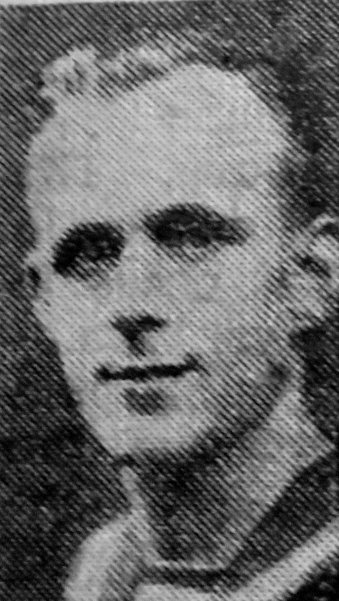Mexborough & Swinton Times – Saturday 04 October 1941
A Cricket Coincidence
West Melton Sailor’s Experience in U.S.A.

How many people who recall a memorable cricket match between Wath and Brampton, on July 13th, 1935, know that its fame reached America? The story was brought hack from the U.S.A. by Richard Birchall, an old student of Brampton Ellis School and Wath Grammar School, son of Mrs. E. Birchall, 16, West End Road, West Melton.
Birchall joined the Navy on March 6th, 1940, and went to America in May, 1941, to coney goods under the Lease and Lend Bill. While at Baltimore he was surprised to find that cricket was played in the district. In a sports Journal for 1937 which he picked up the first thing he saw was an account of a cricket match played in his home town in 1935. This read: “An unusual match was played in the Yorkshire Council on July 13th, 1935, between Wath and Brampton. In fact, the cricket was so sensational that I think the details are well worth producing for those statistically minded readers who may not have seen them. Wath batted first and going in second wicket down, T. Hargreaves flogged the Brampton bowling so mercilessly that he hit up 191 in just over 1 ¾ hours. No fewer than 16 sixes and 23 fours were included in the total. Brampton set about their task with such determination that a close finish was seen in prospect. One of their opening batsmen, A. Smith, was l.b.w. when only five short of his century. J. Dodds made 41, R. Denton 52 and E. Hickling and A. Leyland both scored 45. In the last over of the match, Brampton drew level and amid tremendous excitement, the game ended in a tie, 662 runs being scored in the match for the loss of only 12 wickets, and this must surely be a record for Yorkshire cricket.”
When asked how the Americans received the British Navy, Birchall said: “The American people were great. The only money we were allowed to spend was on presents for those at home. The citizens of Baltimore paid for everything for us. We were entertained by the U.S.A. Navy for several days at a camp, during which time everything was perfect. Every day a line of cars could be outside the dock where we were stationed and any person who had made no arrangements was soon snapped up and given a glorious evening. Food and clothes were plentiful. The journeys there and back were accomplished without any trouble.
While her son was in America, Mrs. Birchall received a letter from a Baltimore woman which said how much the American people enjoyed extending their hospitality to the British seamen. “My husband has been to England and he and your son recalled names and places,” she wrote. “We have decided in a more serene future that we will endeavour to exchange visits socially. It has been a pleasure knowing Dick and his shipmates so well. Our very best wishes to you, and may your continual courage and hopes be realised.
Birchall has been on leave recently.